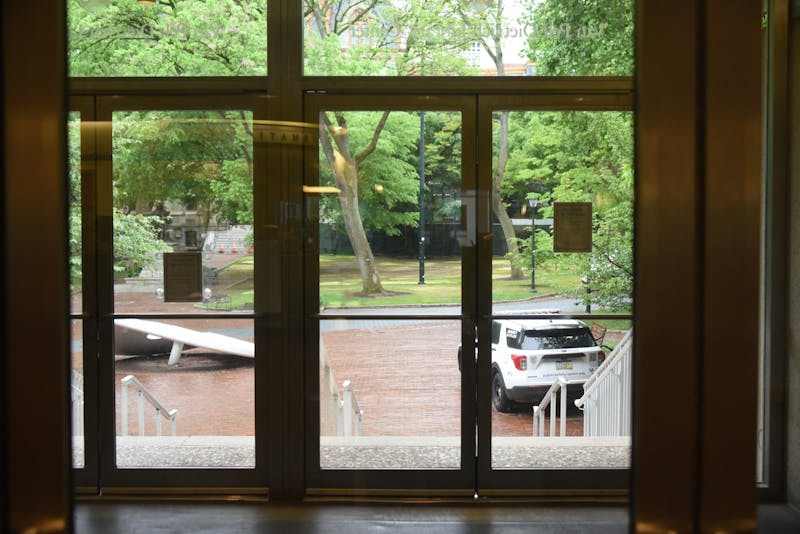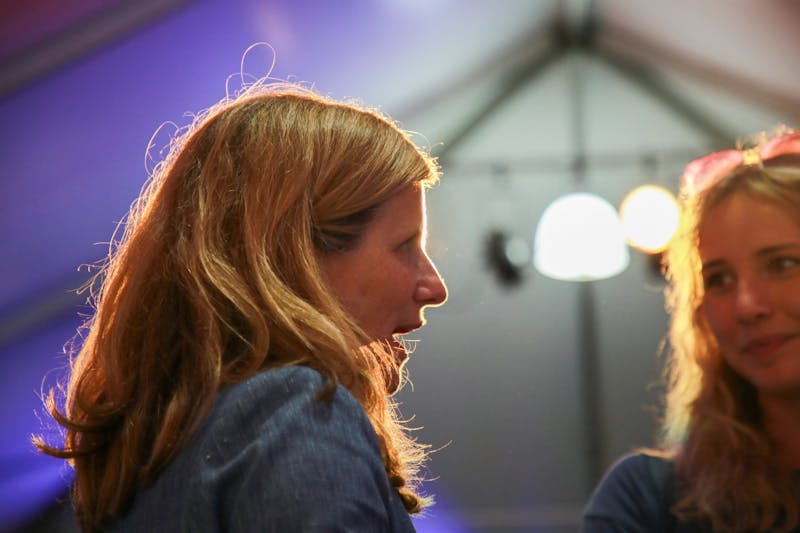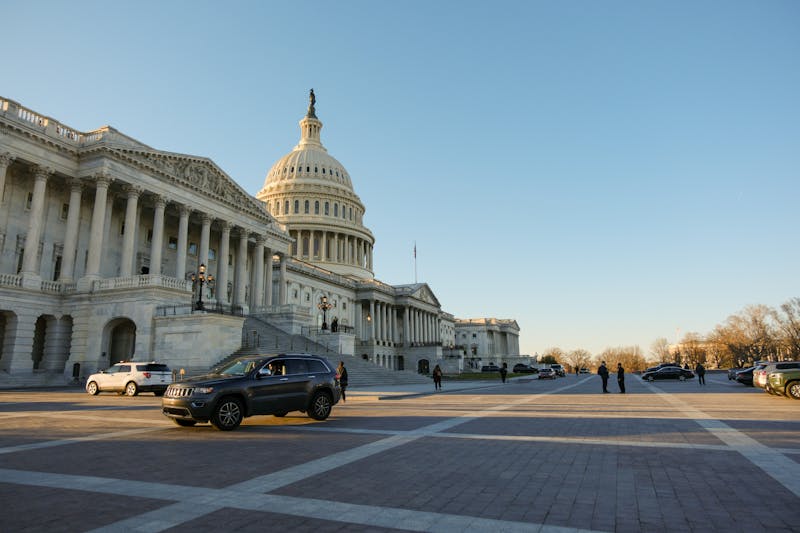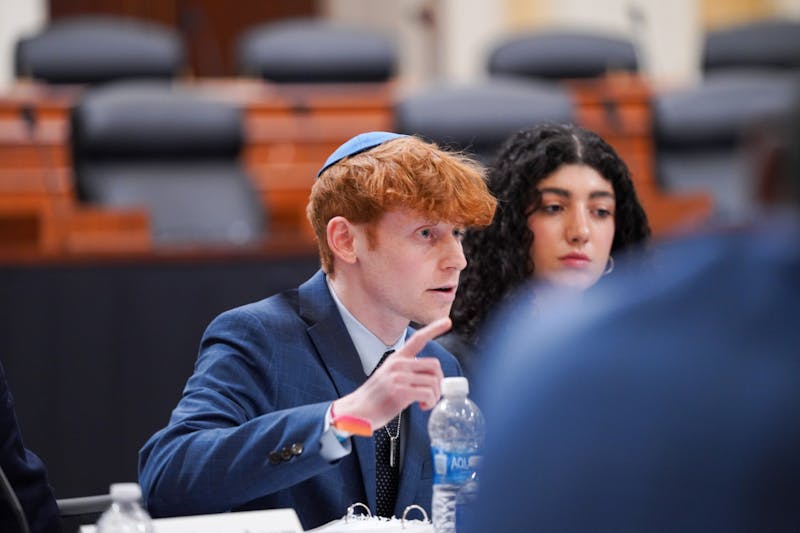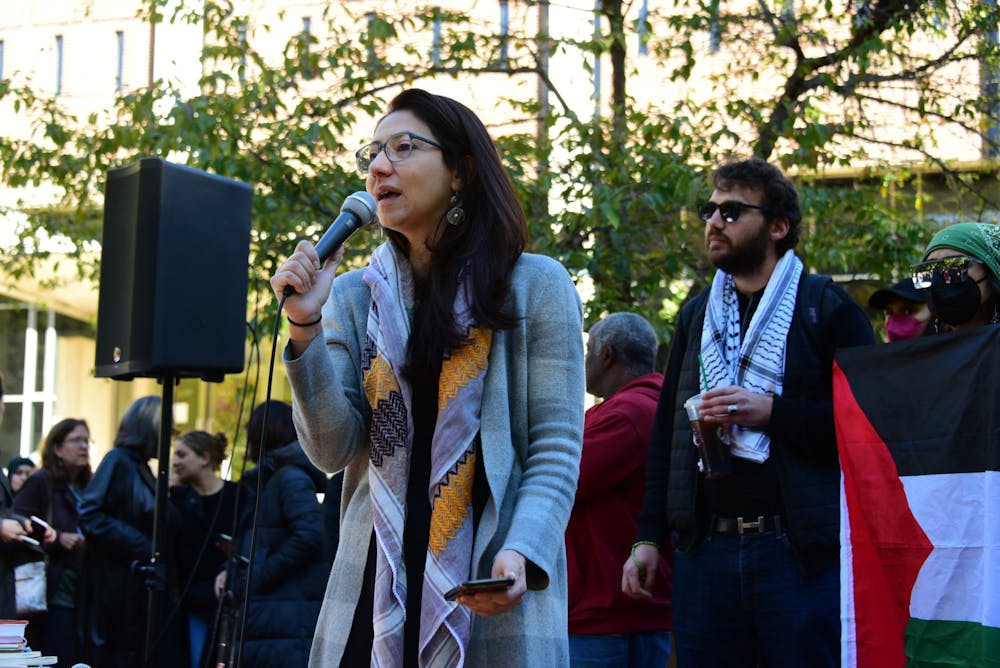
Penn agreed to send information regarding its faculty members to the United States House Committee on Education and the Workforce for an investigation into the University’s response to antisemitism, according to an open letter by the Middle East Studies Association.
In January, Committee Chair Rep. Virginia Foxx (R-N.C.) sent a letter to Interim Penn President Larry Jameson and the University Board of Trustees expressing concerns over Penn’s handling of antisemitism on campus and requesting extensive documents. In a letter sent on Aug. 28, MESA — a nonprofit that aims to promote scholarship on the Middle East and North Africa — criticized Penn’s cooperation with the investigation, stating that Penn has placed two professors’ University-affiliated email accounts on hold and agreed to share their syllabi with the committee.
The letter calls on Jameson and Provost John Jackson Jr. to halt Penn’s cooperation with the request for records, protect academic freedom, and apologize to the faculty members whose information may be shared with the committee.
A University spokesperson declined to comment.
In a statement to The Daily Pennsylvanian, chair of the MESA Committee on Academic Freedom Laurie Brand wrote that “our letter speaks for itself.”
In its letter early this year, the House Committee alleged that several Penn faculty members — including professor of Arabic Literature Huda Fakhreddine, Ahmad Almallah, an artist-in-residence at Penn’s Creative Writing Program, and professor of Political Science Robert Vitalis — made “antisemitic remarks and statements of support for Hamas.”
According to MESA’s letter, Penn informed Fakhreddine and Almallah in August that it received a request from the committee to turn over the professors’ CVs and syllabi since fall 2022 for the investigation, and the University agreed to do so. It also stated that Penn has “apparently placed holds” on Fakhreddine’s and Almallah’s University-affiliated email accounts, indicating that the University may be willing to grant access to their communications.
The letter criticizes Penn’s cooperation with the Committee’s “politically motivated investigations,” highlighting that there was no subpoena requiring compliance with the Committee’s request for records.
“Your failure to resist the Committee’s improper demands and resolutely defend your faculty makes a mockery of your university’s avowed commitment to academic freedom,” the letter read.
The letter expresses concern over Penn’s cooperation with the Committee, drawing parallels to the House Un-American Activities Committee hearings of the mid-20th century. It then calls on Penn to “immediately desist from any form of cooperation with the witch-hunt which the House Committee on Education and the Workforce has launched against members of its faculty.”
Citing an earlier letter from May 7, MESA re-emphasizes that “[t]hrough its recent investigations and public hearings, the Committee has threatened the freedoms essential to university life and learning, including academic freedom, freedom of speech, and freedom of assembly.” It adds that the investigation has made campus less safe for students, faculty and staff.
MESA also calls into question the intentions of the Committee investigating, writing that “the framing and content of [the Committee’s hearings and investigations] make it clear that many Committee members are less concerned with combating invidious discrimination than with suppressing and punishing pro-Palestine speech.”
The letter ends by urging the University to affirm its commitment to academic freedom and to protect faculty, students, and staff from government harassment and intimidation. It also calls for a public apology to faculty members whose information was provided to the Committee.
One day after the MESA letter, Fakhreddine published an article detailing her experiences as an Arabic literature professor. In the article, she recalls her childhood memories of violence during an Israeli incursion in Lebanon. She goes on to recount the isolation and tension she felt within the University following the Palestine Writes Literature Festival, describing backlash including threats to both her partner and family.
Fakhreddine also reflects on her experiences in American academia, particularly focusing on the challenges of studying and teaching Palestinian literature in the current political climate.
“If the Committee does get hold of my information, let them consider it a privilege to look through my CV, a record of which I am extremely proud. As they comb through my syllabi, I can only hope that they recognize the privilege of this invitation to the vast and generous world of Arabic poetry,” Fakhreddine wrote in reference to the House Committee on Education and the Workforce investigations.
The Daily Pennsylvanian is an independent, student-run newspaper. Please consider making a donation to support the coverage that shapes the University. Your generosity ensures a future of strong journalism at Penn.
Donate




